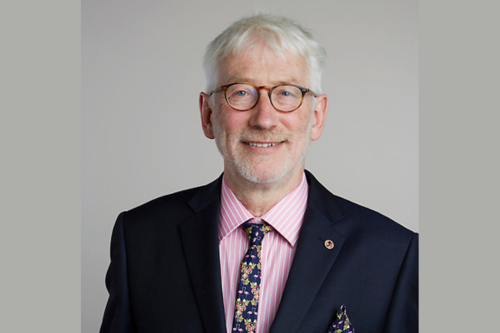Bristol Scientist Awarded £130,000 Micius Quantum Prize for Groundbreaking Research
Professor John Rarity, Professor of Optical Communications Systems in the School of Electrical, Electronic and Mechanical Engineering has been recognised for his pioneering work on the quantum nature of light and its applications.
His research has helped build the foundations for emerging quantum technologies that may soon impact many areas of science and everyday life.
As the winner in the experimental category, Professor Rarity will receive 1.25 million Chinese yuan (£132,000) and a gold medal. He shares the honour with Professor Nicolas Gisin from Geneva University, who will receive the same prize.
The Micius Quantum Prize is one of the top honours in the field of quantum science. It recognises researchers who have made major advances in quantum communications, computing, and other quantum technologies. The Micius Quantum Foundation was established to promote the field and recognise the scientists who have made outstanding contributions.
The prize is named after Micius, an ancient Chinese philosopher who performed early experiments in optics and had ideas that relate to modern quantum physics.
Professor Rarity said: “I was extremely surprised and walked around in a bit of a daze for the rest of the day when I found out I had won! I think I had a mild dose of imposter syndrome but now I feel extremely honoured that my works has been recognised.”
Professor Rarity’s passion for quantum science began during his graduate studies at university. “It was then that I realised that science was not just about study, revision and exams,” he said. “I could explore my own ideas and discover new phenomena.”
Over the course of his career, Professor Rarity has made several major discoveries. One of his most significant was demonstrating a quantum effect called “path entanglement” in the late 1980’s.
Professor Rarity also helped show how quantum principles could be used to create ultra-secure communication systems. This insight helped launch the field of quantum information science.
Professor Rarity continues to be excited by how far quantum technology has advanced, saying: “I am amazed at how far we have come from fundamental science experiments in the 1980’s and 90’s through to millimetre scale photonic chip realisations in the last 15 years.”
On his own field he said: “In quantum communications we have moved from bulky optical tables in the 90’s to matchbox scale cube satellite payloads and chip scale fibre optic quantum key distribution systems.”
He credits the University of Bristol’s supportive environment for helping drive advances in quantum research.
“The formation and support of the Quantum Engineering Technology laboratories by the Faculties of Science and Engineering has maintained our core, nurturing the development of world leading academics and teams,” Professor Rarity said.
“The collegiate attitude where skills and resources are shared across the group means all have access to the latest high tech equipment and knowledge.”
Professor Rarity said he has a long list for how he intends to use the prize money including getting married in 2025, a final QETLABS/Photonics group ski trip and a donation to the Sepsis Trust.
The Micius Quantum Foundation, which awards the prize, was established in 2018. It aims to promote research and development in quantum science.
Each year, the Foundation recognizes leading scientists who have made outstanding contributions to quantum communications, computing, and related fields. Past winners have included researchers from the United States, France, Spain and Japan
Professor Rarity will travel to China next year for the ceremony, where he will receive the Gold Medal.
The Micius Quantum Prize highlights the rapid growth of quantum science and technology in recent years. Researchers around the world are working to harness quantum effects to create powerful new tools for computing, communications, and more.

